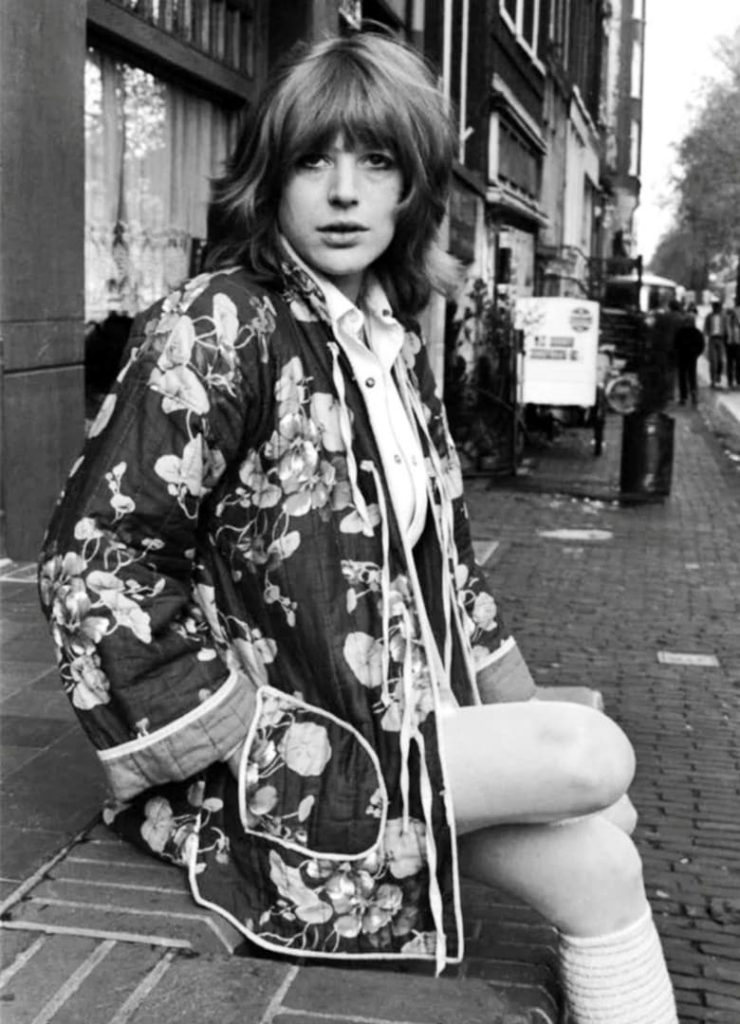
A Haunting Anthem of Disillusionment and Rebellion
Few songs capture anger, disillusionment, and the cold, fractured reality of a changing world quite like “Broken English” by Marianne Faithfull. Released in January 1980 as the second single from her landmark album of the same name, the song marked an uncompromising reinvention of an artist who had once been known for her delicate, ethereal folk-pop in the 1960s. Gone was the fragile ingénue of “As Tears Go By”—in her place stood a woman scarred by experience, hardened by life, and unafraid to confront the darkness of modern times.
Though “Broken English” failed to chart in the UK and US, it found commercial success in Europe, landing in the top 40 in Germany, Sweden, and New Zealand. But the song’s legacy transcended chart positions—it became a defining moment in Faithfull’s career, a chilling yet mesmerizing statement on political violence, alienation, and the shattered ideals of a generation.
At the heart of the song is the specter of terrorism, a theme that was deeply unsettling yet tragically relevant. Faithfull was inspired by Ulrike Meinhof, one of the key figures in the Baader-Meinhof Gang, a radical far-left militant group active in Germany during the 1970s. Faithfull allegedly first encountered the phrase “broken English” while watching a documentary about the group, where it was used as a subheading—perhaps referencing the way non-native speakers express themselves, or more symbolically, the fragmented state of communication, politics, and ideology in an increasingly violent world.
Faithfull’s hoarse, world-weary vocals carry the weight of the song’s message. She doesn’t simply sing—she declares, accuses, and challenges. The lyrics, cryptic yet ferociously defiant, evoke images of rage, destruction, and shattered belief systems. The chorus pounds with an eerie, almost mechanical urgency, the repetitive title phrase sounding like a transmission from a world on the brink of collapse.
Musically, “Broken English” was a complete departure from Faithfull’s earlier work. The song is built on cold, electronic pulses, jagged guitars, and an ominous drum beat, blending punk energy, new wave experimentation, and post-disco rhythms. The album’s producer, Mark Miller Mundy, helped craft a sound that was raw yet futuristic, dark yet hypnotic—a fitting backdrop for Faithfull’s smoky, broken voice, which itself sounded like the product of a world teetering on the edge.
The Broken English album was widely hailed as one of the greatest comebacks in rock history. After years of drug addiction, homelessness, and personal struggles, Faithfull emerged with an album that was brutally honest, politically charged, and deeply personal. “Broken English,” as its title track, set the tone for an album that would explore rage, regret, female empowerment, and the scars of a turbulent life.
Even today, the song remains eerily relevant, its themes of political violence, alienation, and societal unrest echoing in modern conflicts and fractured ideologies. It was not just a song of its time, but a song ahead of its time—a reminder that the world remains haunted by the same fears, the same divisions, the same unhealed wounds.
For those who lived through the late ‘70s, “Broken English” was a wake-up call, a song that didn’t offer easy answers but demanded that people look at the world around them with open eyes. And for Marianne Faithfull, it was a declaration of artistic rebirth—a testament to her resilience, intelligence, and uncompromising vision.